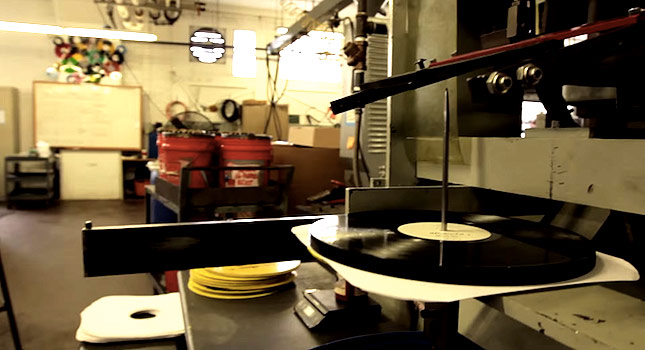 In 1946 a young man with an entrepreneurial spirit and a love for music, in the city of Philadelphia, embarked on a journey which would eventually fuel the world of independent musicians for decades to come.
In 1946 a young man with an entrepreneurial spirit and a love for music, in the city of Philadelphia, embarked on a journey which would eventually fuel the world of independent musicians for decades to come.
Ivin Ballen created the Ballen record company. You may have never heard of his record company but you probably know the company that came out of that, Disc Makers.
Ballen needed to find a place to press his artists’ music into 78 rpm records. When he couldn’t find the right place, he created it. Artists could record in one room of his building and on another floor those recordings were pressed into sellable records.
When Ballen’s artists weren’t producing music he would market his services to other record labels, which according to discmakers.com turned out to be a very risky venture. Labels wanted super fast turn around times and risky credit terms. If an artist failed their invoices may never get paid.
After Ballen’s death in 1978 his son Morris took over the company. As working with record labels continued to become even riskier Morris opened up shop to independent artists with short 300 unit runs. Artists from Philadelphia, New York and the Baltimore Washington area would come to DiscMakers to have their vinyl pressed. They were even big with DJs and early remix producers who would have short runs done to get their newest remixes in the hands of DJs up and down the east coast.
Eventually Morris realized an opportunity to expand nationally and become a one stop shop for independent artists. With the CD boom in the 90s DiscMakers grew exponentially. One of the biggest draws, was the ability to have artwork done for free as well as CD packaging.
Although many took it for granted DiscMakers kept up with the pulse of technology. They moved to the booming CD business, then software duplication, DVD duplication and even online sales through their sister company CD baby.
Well as technology moved further and further away from the vinyl record, the turn of the millennium meant shutting down the vinyl cutters, die machine and record presses. 2000 saw the end of an era for DiscMakers which at the time was seeing their replicator business, cd business and DVD business continue to grow.
And then vinyl became cool again.
Hipsters are often credited with the new rise in vinyl. Stores like Urban Outfitters not only sell a collection of the latest vinyl but record players as well.
DJs continue to use vinyl in some cases. And vinyl has been credited for turning some longstanding indpendent record stores’ business back around.
More and more artists are using vinyl as a nostalgic new way to engage with fans. Sure you can buy the latest tracks off of iTunes but vinyl gives an artist’s work a more analog and vintage presence.
Earlier this year DiscMakers turned the vinyl presses back on. This time around DiscMakers is offering complete turn key solutions for any artist and records can be created from files made on a computer or even an iPad. DiscMakers CEO Tony Van Veen officially announced their triumphant return to vinyl in this blog post.

